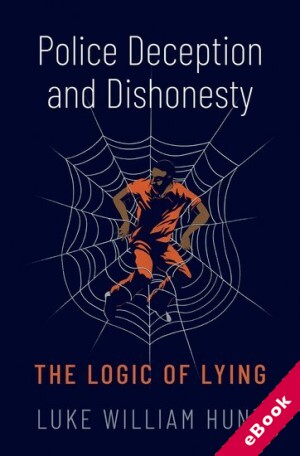
The device(s) you use to access the eBook content must be authorized with an Adobe ID before you download the product otherwise it will fail to register correctly.
For further information see https://www.wildy.com/ebook-formats
Once the order is confirmed an automated e-mail will be sent to you to allow you to download the eBook.
All eBooks are supplied firm sale and cannot be returned. If you believe there is a fault with your eBook then contact us on ebooks@wildy.com and we will help in resolving the issue. This does not affect your statutory rights.
Cooperative relations steeped in honesty and good faith are a necessity for any viable society. This is especially relevant to the police institution because the police are entrusted to promote justice and security. Despite the necessity of societal honesty and good faith, the police institution has embraced deception, dishonesty, and bad faith as tools of the trade for providing security. In fact, it seems that providing security is impossible without using deception and dishonesty during interrogations, undercover operations, pretextual detentions, and other common scenarios. This presents a paradox related to the erosion of public faith in the police institution and the weakening of the police's legitimacy.
In Police Deception and Dishonesty, Luke William Hunt—a philosophy professor and former FBI Special Agent—seeks to solve this puzzle by showing that many of our assumptions about policing and security are unjustified. Specifically, they are unjustified in the way many of our assumptions about security were unjustified after the 9/11 terrorist attacks, when state institutions embraced a variety of brutal rules and tactics in pursuit of perceived security enhancements. The police are likewise unjustified in their pursuit of many supposed security enhancements that rely on proactive deception, dishonesty, and bad faith. Hunt shows that there are compelling reasons to think that the police's widespread use of proactive deception and dishonesty is inconsistent with fundamental norms of political morality regarding fraud and the rule of law. Although there are times and places for dishonesty and deception in policing, Hunt evocatively illustrates why those times and places should be much more limited than current practices suggest.